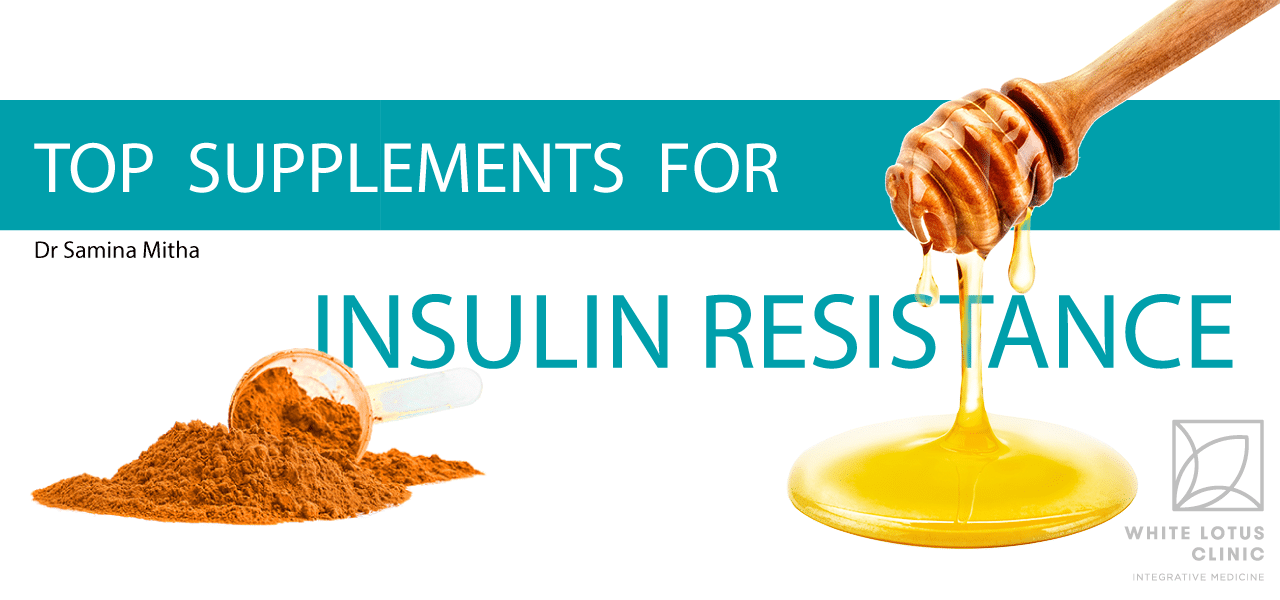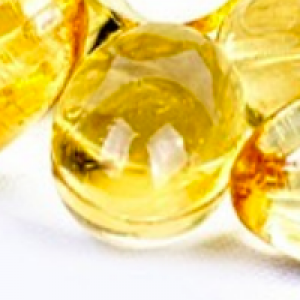Top 3 Supplements for Insulin Resistance
Insulin is one of the most important hormones in our bodies. When you eat something that contains glucose—such as bread, rice, and baked goods—this sends a signal to the pancreas to release insulin. In turn, insulin’s job is to bind to the cell’s receptor sites, which opens up the shuttle for glucose to enter the cell.
Once glucose is in the cell, it can be used to generate energy. Sometimes, the cell’s receptors can become resistant to insulin. This in turn prevents insulin and glucose from getting into the cell itself. Since it can’t get in there, the result is higher amounts of insulin and glucose in the blood stream.
In Polycystic Ovarian Syndrome, higher insulin levels can increase testosterone production. Higher testosterone levels can drive many of the symptoms associated with PCOS, such as irregular menstrual cycles, cystic acne, and hirsutism (excess hair growth).
Additionally, when there are higher levels of glucose in the bloodstream, insulin will end up storing the glucose as fat, which leads to weight gain. Let’s take a look at some of the more popular supplements for insulin resistance, and how they work.

1. Inositol
Inositol is probably one of the most studied natural agents to help treat insulin resistance.
There are two kinds of inositols: myo-inositol and d-chiro inositol. In essence, inositol has a has the ability to sensitize your cells to insulin. The result is more receptors that are insulin responsive, so glucose can get into the cell to be used as energy. When there is less insulin and glucose in your blood stream, you’ll have better results in ovulation frequency and function.
D-Chiro-Inositol is made from Myo-inositol and it is known that women with PCOS excrete D-Chiro-Inositol 6x more than women without the condition. As a result, finding a product that contains both can be immensely beneficial for women with PCOS. [1]
2. Berberine
Berberine is a traditional Chinese medicine herb. It has been historically used as an insulin sensitizer and has been studied against metformin. Berberine is thought to work inside the GI system, altering the gut microflora.
A study in the European Journal of Endocrinology demonstrated that women with PCOS who consumed 500mg of berberine three times daily showed improvement in HOMA-IR, a metabolic marker of insulin resistance. [2]
3. Chromium picolinate
Chromium is an important mineral that has shown to have a beneficial impact on insulin’s role in carbohydrate, protein and lipid metabolism. Since chromium is poorly absorbed in the diet, supplementing with chromium picolinate can be very beneficial in patients with insulin resistance, cardiovascular disease and type 2 diabetes.
This 2017 systematic review with 7 Randomized Control Trials showed that chromium picolinate given to PCOS patients has a positive effect in decreasing BMI, fasting insulin, and free testosterone. [3]

Other supplements for insulin resistance include:
Vitamin D
Low Vitamin D levels have been associated with insulin resistance. As such, it’s extremely important to get your levels tested and to speak to your health care practitioner on the correct dosing for your body’s requirements.
Alpha Lipoic Acid
This is an antioxidant that’s known to improve glucose uptake. It also improves insulin resistance and lipid metabolism in women with PCOS.
Omega 3 Fatty Acids
Fish oil has long been associated with inflammation reduction. Insulin resistance is linked to inflammatory pathways, so using omega 3 fatty acids to reduce inflammation can indirectly help with insulin resistance.
Key Points:
- Insulin resistance is a common underlying cause of PCOS.
- Common signs of insulin resistance include weight gain and acne.
- Natural supplements for insulin resistance mentioned in the research include inositol, berberine, and chromium.
What’s next?
- Learn about the 5 Skin Signs of Insulin Resistance
- Read about the Food Insulin Demand, an interesting dietary metric in insulin resistance
- Interested in testing to see if you have insulin resistance? Book a consultation with one of our Naturopathic Doctors.
References
- Baillargeon, J. P., Diamanti-Kandarakis, E., Ostlund, R. E., Apridonidze, T., Iuorno, M. J., & Nestler, J. E. (2006). Altered D-chiro-inositol urinary clearance in women with polycystic ovary syndrome. Diabetes Care, 29(2), 300–305. https://doi.org/10.2337/diacare.29.02.06.dc05-1070
- Fazelian, S., Rouhani, M. H., Bank, S. S., & Amani, R. (2017). Chromium supplementation and polycystic ovary syndrome: A systematic review and meta-analysis. Journal of Trace Elements in Medicine and Biology, 42, 92–96. https://doi.org/10.1016/j.jtemb.2017.04.008
- Wei, W., Zhao, H., Wang, A., Sui, M., Liang, K., Deng, H., … Guan, Y. (2012). A clinical study on the short-term effect of berberine in comparison to metformin on the metabolic characteristics of women with polycystic ovary syndrome. European Journal of Endocrinology, 166(1), 99–105. https://doi.org/10.1530/EJE-11-0616




